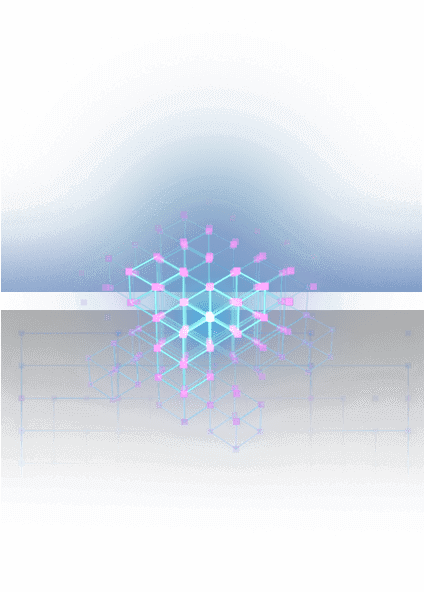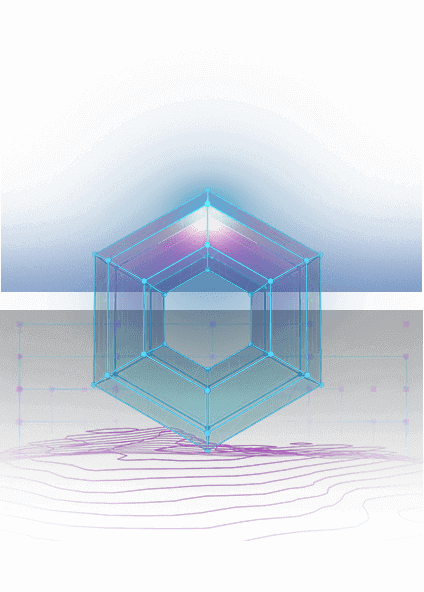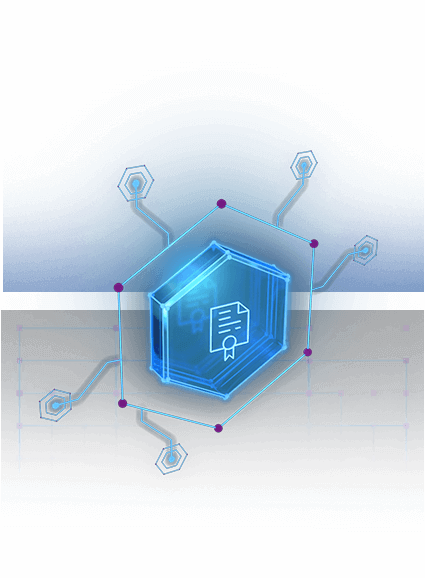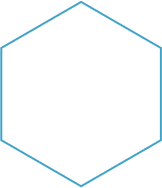DERO is a general purpose, private, and scalable decentralized application platform that allows developers to deploy powerful and unstoppable applications, while users retain total control over their assets with complete privacy.
Fast Blocks - 18 Second Block Time
Private Smart Contracts and Services
Layer 1 Private Decentralized Application Platform
Instant syncing and fast transactions
- Homomorphic Encryption Blockchain Protocol
- Private Smart Contract Platform & Services
- No Trusted Setups or Hidden Parameters
- Fast Transaction Confirmations (~18 sec.)

- Instant Wallet Syncing
- Fully Scalable Blockchain
- Turing Complete DVM
- Decentralized Proof-of-Work Mining
The DERO Project has created a platform for developers to deploy secure, open, scalable, and privacy-preserving decentralized applications. DERO is unique because we value security and privacy above all else; as a result, users are able to transact privately over our network without fear of common protocol-level and network attacks. Additionally, our technology preserves transparency where required and scales with network load, which provides an ideal environment for business-class applications.
Mining Algorithm:AstroBWT
Max supply:21 Million
Atomic Units:5
Block reward:Halving every 4 years
Difficulty:Retargets at every block
Ticker:DERO
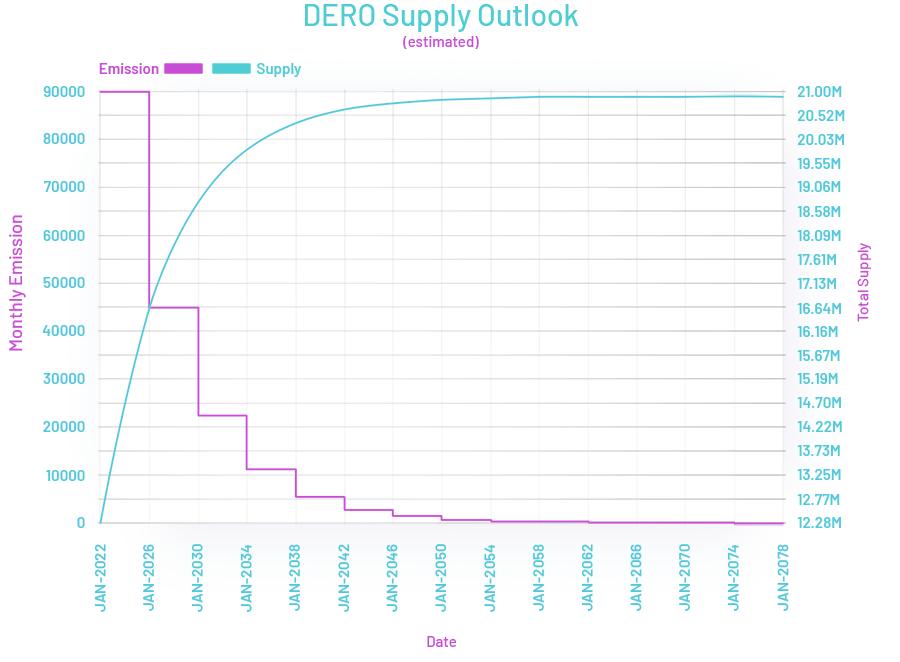
DERO Homomorphic Encryption Blockchain Protocol (DHEBP) combines homomorphic encryption and an account based model to provide instant transactions as well as security and privacy.
DERO Σ (Sigma) mining and Σ blocks create utilize a network wide consensus for mining as well as rewarding all miners for effort vs a winner take all block reward system. All Transactions are settled in the same block in which they occur, allowing for instant full confirmation.
DHEBP is decentralized, private and scaleable.
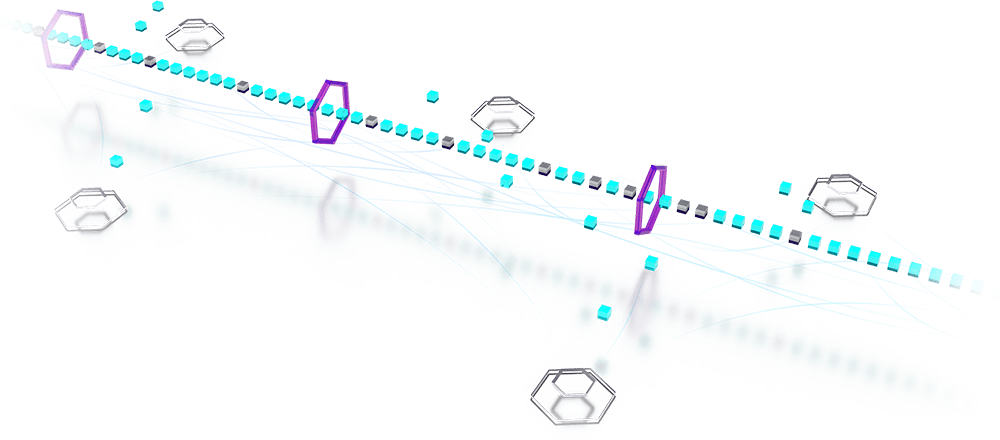
DERO wallets can only have one open spending transaction at a time to one or many addresses this prevents any sending account from double spending. These transactions are settled on the same block they are sent so subsequent transactions can be made immediately.
True privacy on chain.
While a typical blockchain stores all information on chain in clear text and use a UTXO model, DERO uses a unique encrypted blockchain with an account based model
Not only does this create a secure and private network, it also gives users the ability to check their balance without syncing the entire chain. Wallets only need to query the most recent block in order to obtain their balance information all while being homomorphically encrypted.
Homomorphic Encryption is a type of encryption that allows operations to be performed on encrypted data without decrypting it first. In essence, operations can be performed without revealing the underlying data.
This account based encrypted blockchain model not only provides superior privacy and security but it also allows for instant transactions, transactions settlement and balance information.
On the left is a comparison of DHEBP and a conventional blockchain.
The DERO Project has built a blockchain network that can be used by millions of users around the globe. This makes the security of the network highly important. Unencrypted network communication posses a risk for privacy, security and data integrity. DERO is the first blockchain project to use self signed TLS encryption for its network communication, which protects the network participants from eavesdropping and tampering of network data.
DERO also utilizes UDP for peer to peer communication instead of TCP. This allows node software to run and listen to network events while reducing exposure to the operating system's kernel and also lowers network overhead.
The DERO team also keeps future large scale applications in mind, e.g. enterprise services which handle thousands of clients per second. They are continuously improving the network in order to accomplish this goal. For example, with the encrypted network, after performing benchmarks they chose ECDSA instead of RSA as method for key generation as it allows for a higher number of handshakes per second.
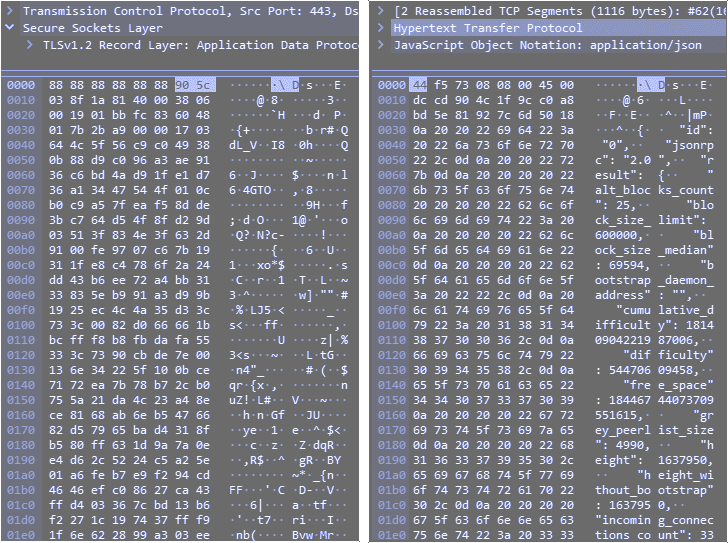
Comparison of network data captured from wallet traffic
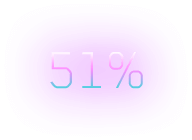







18 Second Blocktime
Same block/instant confirmation
No Soft Forks/Chain Splits
SSL/TLS UDP P2P Network
A Layer 1 Private Decentralized Application Platform
Fully Auditable Supply
DERO Network Specifications
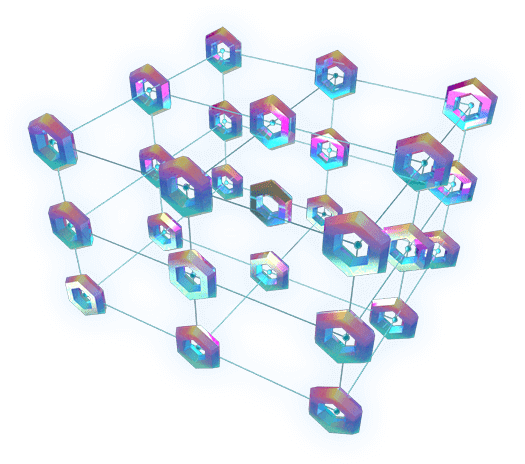
Fully Encrypted Blockchain
No Orphan Blocks
Homomorphic Encryption Protocol
Native dApp Support
Written from Scratch in Golang
1.25 MB Block Size
Mining DERO has been completely reworked to vastly decentralize mining rewards with the introduction of Σ-blocks (Sigma blocks), which are simply smaller blocks that are constantly
emitted every 1 second and converge into the final 18 second block. Even more plainly, the Σ-Blocks allow on-chain storage of mining data, which effectively turns DERO into one large mining pool. Every miner on the entire network will receive mining rewards based on the amount of work that was contributed, thus creating a truly decentralized network and distribution of rewards.
It also greatly improves handling of massive network traffic, where each daemon can support over 10,000 connected devices, acting as a way to pool all of your devices.
The current configuration of Σ Mining is that all Σ-blocks settle every main block (~18 seconds) and settles all mining rewards every 18 blocks. There are ~86,400 reward blocks daily
If a miner has 1/86400 (total daily emitted Σ-Blocks) of the total network hashrate, the miner will get probabilistically averaged rewards daily based on shares contributed. For example, 100K miners will get rewards daily. Similarly, if a miner has mining power amounting to half of 1/86400 (or 1/172800), the miner will get rewards every 2 days.
For a list of hardware benchmarks please visit our community created benchmark website here
In addition, each daemon essentially functions as it’s own mining pool, which tracks mining shares from devices connected to it. The daemon itself will retain a fixed fee of 1.6% for the daemon operator, the rest will be distributed to all miners that contributed shares to that daemon. For most miners, they will be mining using their own daemon, so all rewards and fees will be credited.
We encourage everyone to mine and run their own node!
Please click below for a full guide on how to mine DERO and how to run a full node
HOW TO GUIDES
December 2017
Launch of DERO Project
April 2018
DERO mainnet migrates to the Golang implementation
July 2018
Mainnet migrates to Atlantis code base with 12 secs block time and Rocket Bulletproofs
January 2019
DERO Stargate RC1 testnet released, providing fully functional smart contracts on cryptonote.
August 2020
DHEBP - DERO Homomorphic Encryption Blockchain Protocol
February 2021
Stargate RC2 using DHEBP on Testnet

March 2018
Implementation of the CryptoNote Protocol in Golang completed
June 2018
DERO Atlantis development completed and testnet launched
October 2018
Completely in browser web wallet completed with client side key storage.
March 2020
DERO releases and migrates to AstroBWT an egalitarian PoW algorithm that makes CPU mining economically effcient.
Sept 2020
Graviton: ZFS for Key-Value Stores
February 2022
Stargate RC2 with Private Smart Contracts and Services launched on mainnet.
Future Development
DERO developers continue research and development, including quantum resistance.


